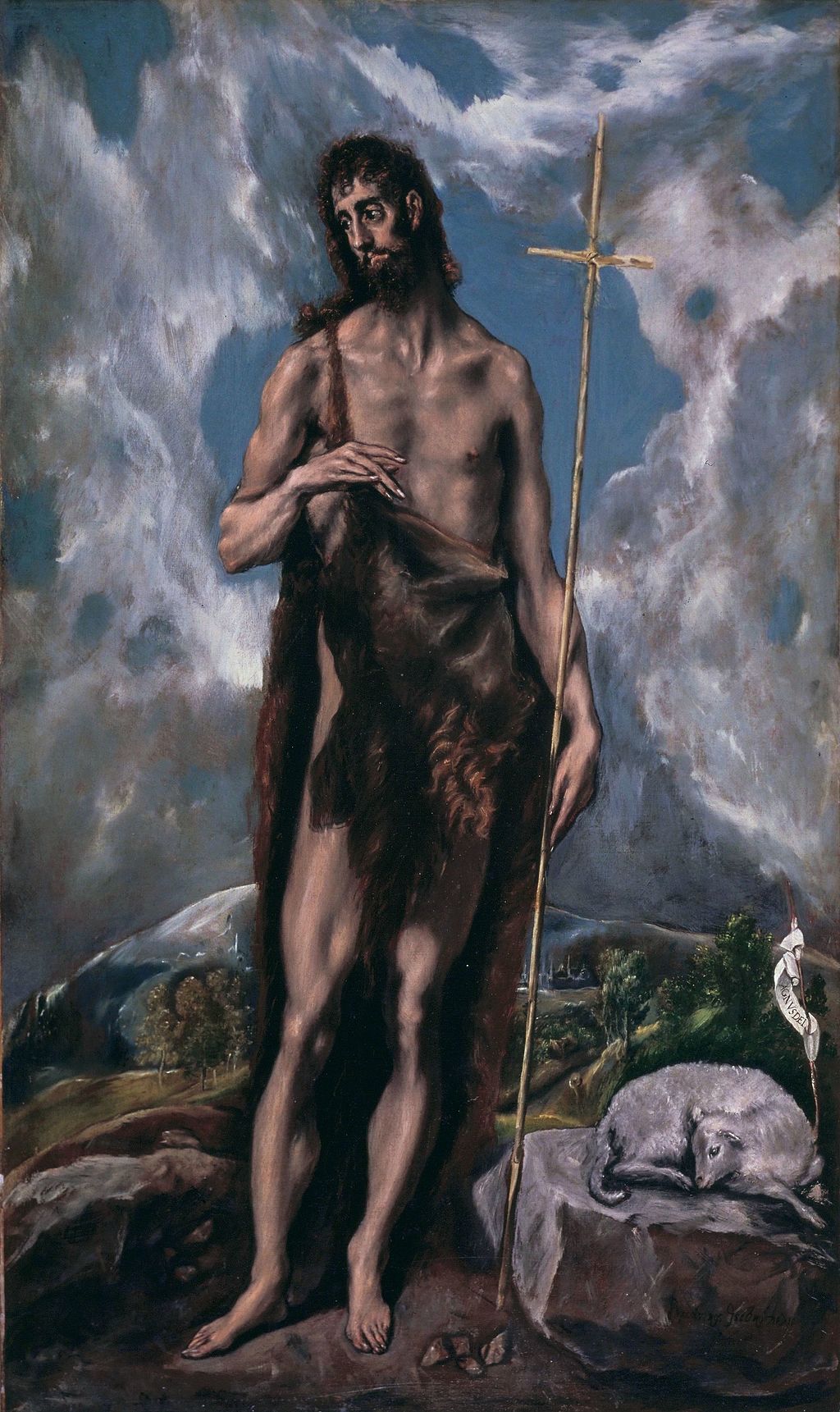“Here is your God.” Behold, your God. These are some of the words we heard from the
Isaiah. He has more to say about God: that
He comes with vindication, with divine recompense, he comes to save you. It goes on, talking of all the miraculous
healing that will happen, all great cause for rejoicing on this Gaudete Sunday, the Sunday of
rejoicing. Advent is a lot about waiting
for the future. It’s also about remembering the past, building up our trust and
hope that Christ will come again by remembering that he came. But the readings
we heard today shift our focus from both past and future to present. “Here
Is your God.” Not, here’s the
spot where he will be, just hang on; certainly not, there’s where he will be,
but he’s distant now, so don’t bother Him.
No. Behold Him. Here is your
God. The cry might go up… “where?”
Imagine hearing
this scripture in Jesus’ time. Imagine
yourself a Palestinian Jew, a lost sheep of the house of Israel, a member of an
exploited client kingdom of the Roman Empire, a peasant farmer maybe,
constantly in fear of a poor harvest.
You’re faithful, and you trust wholeheartedly that God will come and
water this desert so that it will bloom, but right now, not much is
blooming. You’re hungry. “Here is your God?” Where? Certainly not in Herod, the King who was
meant to be God’s servant, a king who should show forth God’s providential care
in his beneficent reign. No, Herod
Antipas was selfishly opulent at best, and as ruthlessly oppressive as Rome
would allow the rest of the time. But
there had been someone, someone who made you feel that God could actually be
close to you here and now.
He was odd,
decidedly odd. There was no denying
that. But compelling; strangely
compelling. You didn’t go out into the
desert to see someone like Herod, dressed in fine clothing. You weren’t attracted by money, by the swaying
reed that adorned some of Herod’s coins.
No, you went out to seem someone sturdily odd, on the outskirts; he was
what drew you. He talked of the coming
judgment, that you knew all about, but then he invited: repent, and be
baptized, for the kingdom of heaven is at hand. Here,
is this God you found here? In the man who said that these Jordan waters,
this rather unimpressive stream, could wash you clean of the sins that bound
you? But he’s in prison now, because your
world is one in which everything good gets locked up and then killed. Where is your God?
Now there’s
another man, a wandering teacher, homeless it seems. Also odd in his own way,
though his diet seemed a little bit more normal. Funny accent, they say he was
born in Bethlehem, but grew up in Egypt of all places and then moved to
Nazareth, some Hicksville village you’ve never heard of, and nobody’s quite
sure who his real father even is! And
you keep asking him who he is, “are you the one we’re waiting for?” And he won’t give a straight answer. He just
keeps on healing people! Here is your God?
Yes. Here is our God. Not in opulence, not in green pastures. In the desert. In the odd one, the sturdily odd. In the other.
In those outside the limits of polite conversation. In those in whom it would be very easy to be
offended. But the route is happiness is to
not be offended at him. Some people live
there on those margins. Those are the
people to whom we need to constantly be proclaiming, “Here is your God!,” and
listening to hear what form that proclamation might take from them. That proclamation could be in words. Or it could be in deeds. Jesus just kept on healing. It’s only God who can wash away sins. It’s only God who can make a desert
bloom. But we’re not powerless, not most
of us, at least, gathered here.
For those
of us who don’t live on the margins, that place where we can say “Here is our
God,” we can go there. In our Holy Cross
Constitutions, our rule for our life, we’re told to “stand with the poor and
the afflicted, because only from there can we appeal as Jesus did for the
conversion and the deliverance of all.”
Only from there.
I heard “Here
is our God” in the prison I taught at before I entered seminary, where my
incarcerated students became my teacher in how to make a big change in your life.
You can hear “here is your God” at Our Lady of the Road, at Hope ministries, by
reaching out to the relative with whom you’re estranged. Here at this table, in this font, in that
reconciliation room, is proclaimed to us again “here is your God.” Here, in our hunger, we are fed. In our need, we are given a word to lighten
the heart of another. Here is our God.

No comments:
Post a Comment